If you are interested in a career in the oil and gas industry, becoming an oil and gas production manager may be a path worth exploring.
As an oil and gas production manager, you would oversee the extraction of oil and gas from the earth and manage the production process from start to finish. This includes everything from drilling and exploration to refining and distribution.
To be successful in this role, you will need a strong background in geology, engineering, and petroleum engineering.
You will also need a solid understanding of science and technology and excellent managerial and leadership skills. As an oil and gas production manager, you will ensure that your team works efficiently and effectively and that all safety and environmental regulations are met.
Table of contents
Role Overview
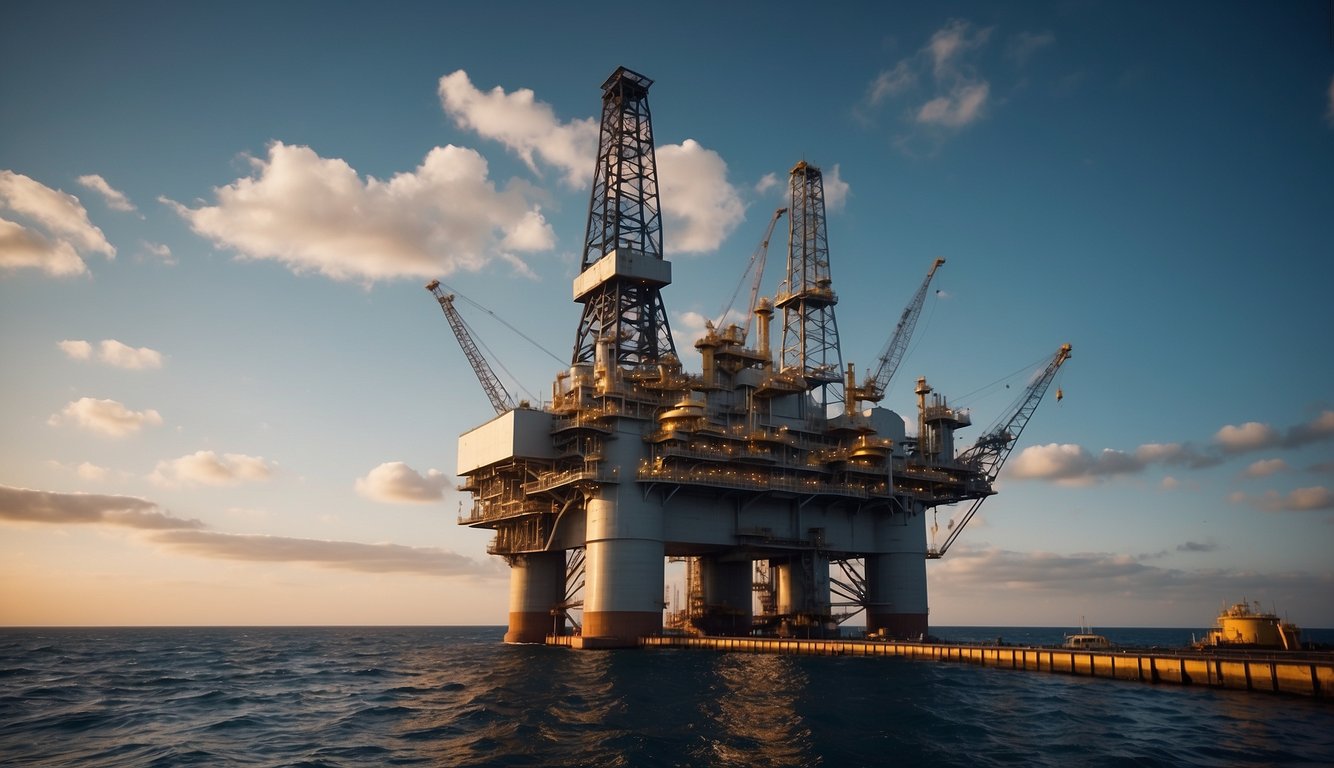
As an oil and gas production manager, you will oversee oil and gas production from milling to extraction. You will ensure that production targets are met while adhering to safety standards. In this role, you must have strong leadership and communication skills to effectively manage a team of workers.
Responsibilities of a Production Manager
As a Production Manager, you will be responsible for managing the day-to-day operations of the production site. This includes overseeing drilling and extraction operations, managing production schedules, and meeting targets. You will also manage a team of workers, ensuring they are adequately trained and motivated to meet production goals.
In addition to managing production operations, you will ensure that safety standards are met. This includes conducting safety inspections, implementing safety procedures, and ensuring workers are adequately trained in safety protocols.
Position in the Industry
As an Oil and Gas Production Manager, you will play a critical role in the oil and gas industry. Your role is essential to ensuring that production targets are met, and oil and gas are extracted safely and efficiently. You will need to deeply understand the industry and the latest production technologies to ensure that your team works efficiently.
Overall, the role of Gas Production Manager is challenging but rewarding. You must have leadership and communication skills and an understanding of the industry and the latest production technologies.
With the right skills and experience, you can build a successful career as a Production Manager in the oil and gas industry.
Educational and Skill Requirements
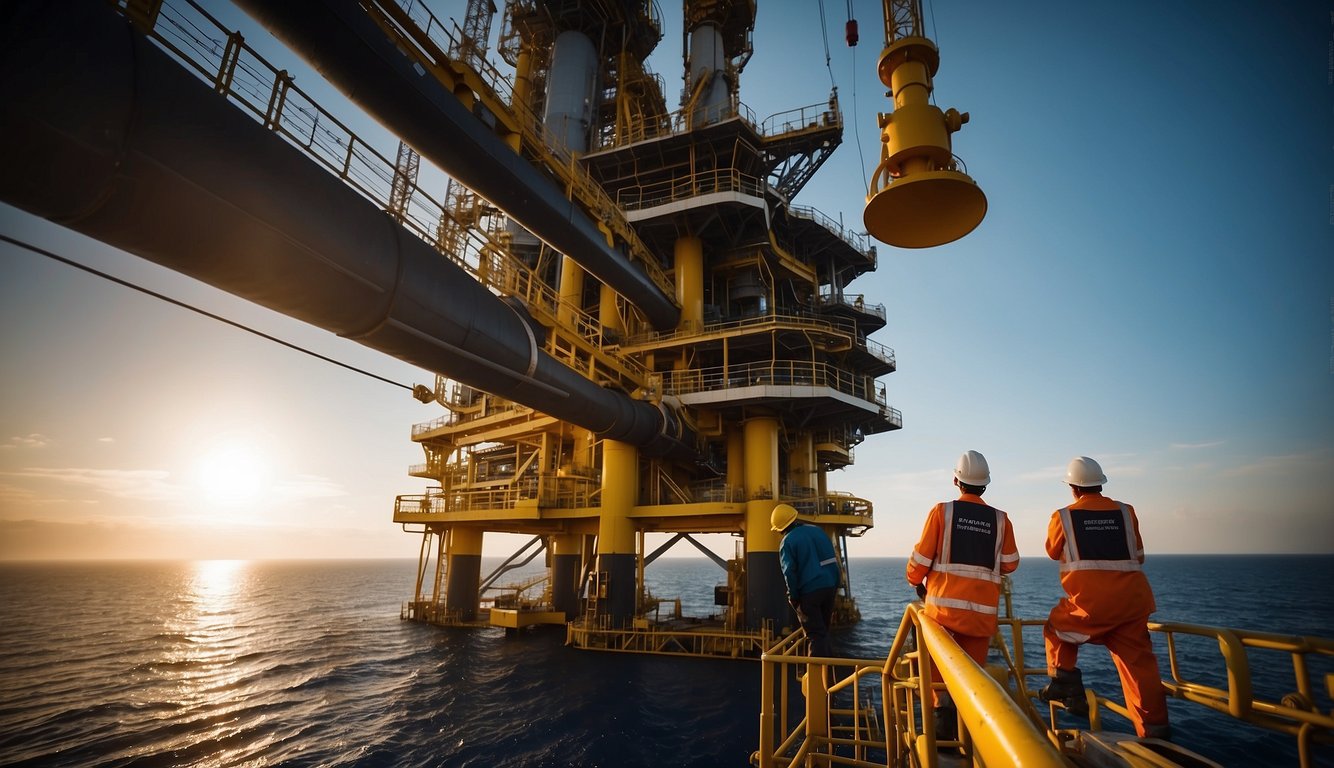
Necessary Educational Background
To become an Oil and Gas Production Manager, you will need a Bachelor’s degree in Petroleum Engineering or a related field. This degree will give you the necessary knowledge and skills to manage oil and gas production operations.
Additionally, a Master’s degree in Petroleum Engineering may be preferred by some employers.
Essential Skills for Success
In addition to the necessary educational background, there are several essential skills that you must have to be successful as an Oil and Gas Production Manager. These skills include:
- Leadership Skills: As an Oil and Gas Production Manager, you will lead a team of engineers and technicians. Therefore, you must have excellent leadership skills to motivate and guide your team toward success.
- Communication Skills: You must have excellent communication skills to communicate with your team, superiors, and clients effectively. You must be able to convey complex technical information clearly and concisely.
- Computer Skills: You must be proficient in using computers and software applications related to oil and gas production. This includes knowledge of production software, data analysis, and reporting tools.
- Engineering Skills: You must understand engineering principles and practices related to oil and gas production. This includes knowledge of drilling, completion, and production operations.
Overall, becoming an Oil and Gas Production Manager requires a combination of education and essential skills.
With the right qualifications and experience, you can succeed in this challenging and rewarding career.
Daily Operations

As an Oil and Gas Production Manager, your daily operations involve overseeing oil and gas production from wells, ensuring the smooth operation of production facilities, and managing field operations.
You are responsible for ensuring that all equipment and technology utilization is optimized to achieve production targets and meet safety and environmental standards.
Production Facilities Management
Your role involves managing the production facilities, which includes overseeing the construction and maintenance of facilities, ensuring that all equipment is functioning correctly, and managing the production processes. You are responsible for ensuring that all production facilities meet safety and environmental standards and address any issues promptly.
Field Operations and Well Testing
As an Oil and Gas Production Manager, you are responsible for managing field operations, including the testing of wells and collecting data. You will work closely with the drilling team to ensure that wells are drilled correctly and produce the desired amount of oil and gas. You will also ensure that all well testing and data collection is done safely and efficiently.
Equipment and Technology Utilization
Your role ensures that all equipment and technology utilized in production is optimized to achieve production targets and meet safety and environmental standards. You will work with the engineering team to identify areas where improvements can be made, and you will oversee the implementation of any changes. You will also ensure that all equipment is maintained correctly and that any issues are addressed promptly.
As an Oil and Gas Production Manager, your daily operations involve managing production facilities, overseeing field operations and well testing, and optimizing equipment and technology to achieve production targets and meet safety and environmental standards.
Management and Leadership
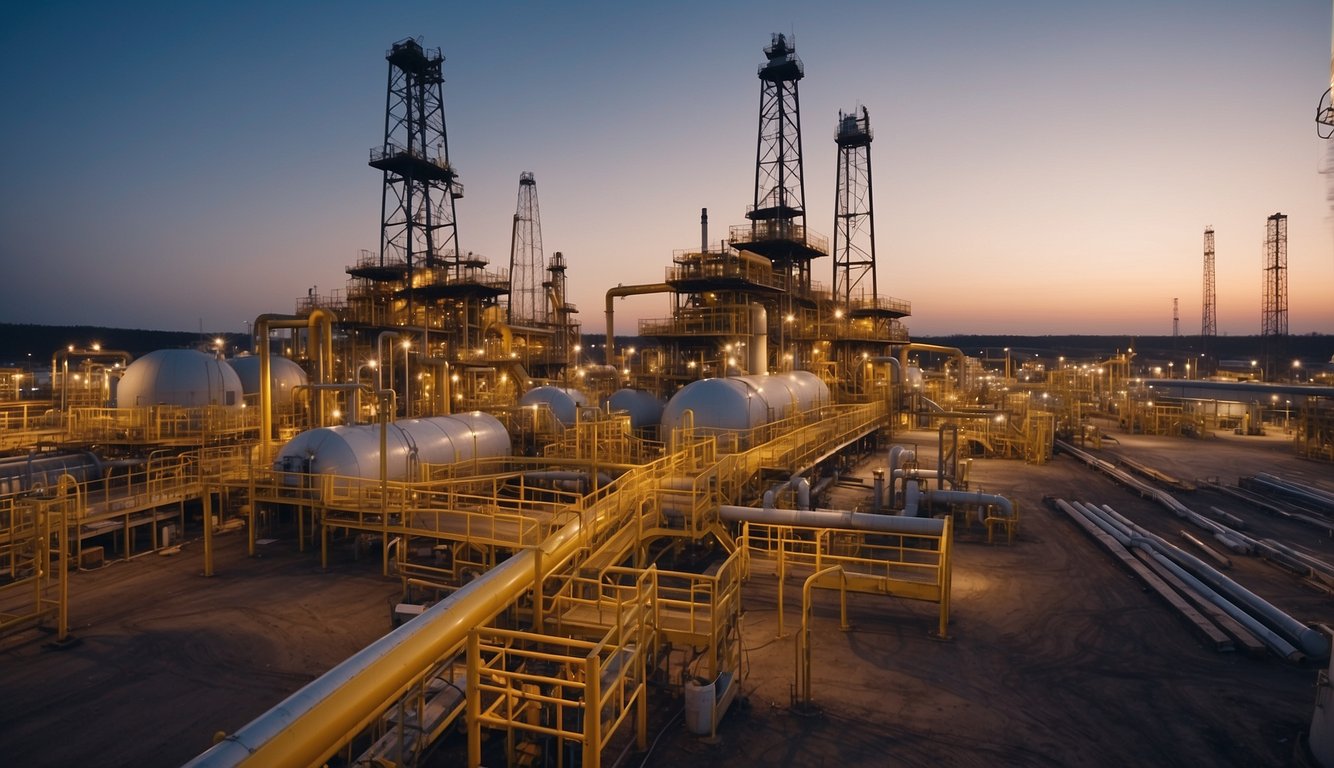
As an Oil and Gas Production Manager, you will manage and lead a team of engineers and operations staff to ensure efficient oil and gas production.
Your leadership skills will be critical in ensuring your team is motivated and working together towards a common goal.
Team Coordination and Leadership
One of the most critical aspects of your Oil and Gas Production Manager role will be coordinating and leading your team effectively.
This will involve setting clear goals and expectations for your team and ensuring everyone is working towards those goals. You must communicate effectively with your team and ensure everyone knows their responsibilities and the deadlines they must meet.
To be an effective leader, you must have excellent communication skills. Communicating clearly and effectively with your team and other stakeholders, such as senior management and clients. You will also need to be able to listen to feedback and concerns from your team and take appropriate action to address any issues.
Decision-Making and Problem-Solving
As an Oil and Gas Production Manager, you will be responsible for making critical decisions that will impact the success of your operations. You will need to be able to analyze data and information to make informed decisions and think critically and creatively to solve problems as they arise.
Your decision-making skills will be particularly important when it comes to managing risk. You will need to be able to assess the risks associated with different production methods and make decisions that minimize those risks while still ensuring the efficient production of oil and gas.
To be an effective Oil and Gas Production Manager, you must understand gas and oil operations strongly. This will enable you to make informed decisions and guide your team when necessary. Your experience as a gas or oil and gas operations manager will be precious.
Financial Responsibilities
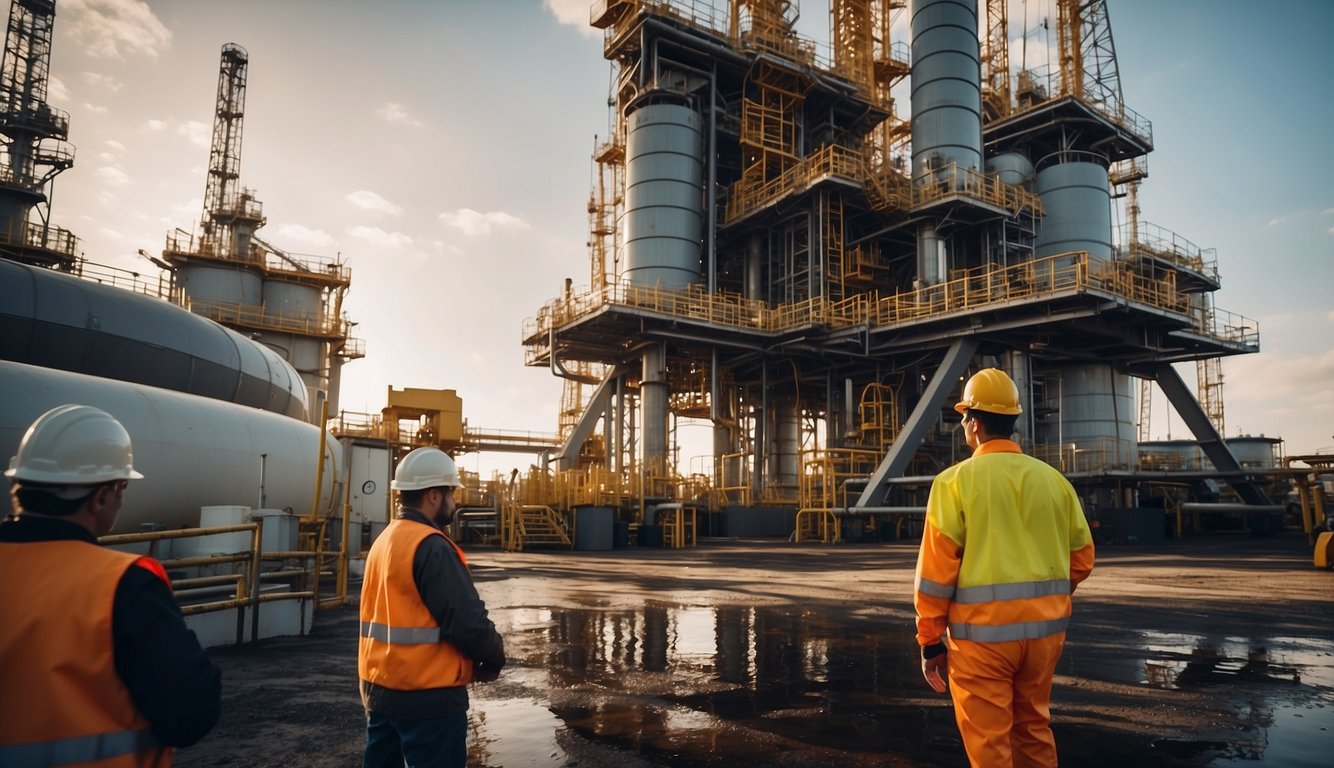
As an Oil and Gas Production Manager, you will be responsible for managing the financial aspects of the production process. This includes budgeting and cost management, as well as maximizing profitability.
Budgeting and Cost Management
One of your primary responsibilities will be creating and managing production process budgets. This involves analyzing costs and expenses and forecasting revenue and profits. You must work closely with other departments, such as finance and accounting, to ensure that budgets are accurate and up-to-date.
To manage costs effectively, you must deeply understand the production process and the various factors that can impact costs. This includes factors such as labor, equipment, and materials. By closely monitoring costs and identifying areas where savings can be made, you can help to ensure that the production process is as efficient and cost-effective as possible.
Maximizing Profitability
As an Oil and Gas Production Manager, your ultimate goal is to maximize profitability. To achieve this, you must focus on increasing production while minimizing costs. This requires a deep understanding of the production process and the various factors that can impact profitability.
To increase production, you will need to set and monitor production targets. This involves analyzing data and identifying areas where production can be increased without sacrificing quality or safety. By setting realistic targets and closely monitoring progress, you can help ensure production levels are optimized.
To minimize costs, you must identify areas where savings can be made. This includes analyzing data and identifying areas where costs can be reduced without sacrificing quality or safety. By working closely with other departments and suppliers, you can help to identify cost-saving opportunities and implement cost-saving measures.
In summary, as an Oil and Gas Production Manager, you will be responsible for managing the financial aspects of the production process. This includes budgeting and cost management, as well as maximizing profitability. By closely monitoring costs and identifying areas where savings can be made, you can help to ensure that the production process is as efficient and cost-effective as possible.
Safety and Regulations

As an Oil and Gas Production Manager, you will always ensure that safety standards and regulatory compliance are followed. This is crucial for the well-being of your team members, the environment, and the success of your operations.
Adherence to Safety Standards
Your job will involve overseeing the production of chemicals and equipment, which can be hazardous if improperly handled. You must ensure that safety standards are adhered to and that your team members are trained in safe handling procedures.
It is also essential to conduct regular safety inspections and audits to identify potential hazards and risks. By doing so, you can implement corrective action plans to mitigate risks and prevent accidents.
Regulatory Compliance
As an Oil and Gas Production Manager, you must comply with all relevant regulations and laws. This includes environmental regulations, health and safety regulations, and labor laws.
You must stay up-to-date with any changes in regulations and ensure that your operations comply. Failure to comply with regulations can result in fines, legal action, and damage your company’s reputation.
In conclusion, you must prioritize safety and regulatory compliance as an Oil and Gas Production Manager. By doing so, you can ensure the well-being of your team members and the success of your operations.
Career Path and Progression

As an Oil and Gas Production Manager, you have various career opportunities. You can advance within your current organization or move on to new opportunities with other companies.
Career Opportunities
Oil and Gas Production Managers can advance to higher-level management positions, such as Regional Manager or Director of Operations. Alternatively, they may specialize in a specific production area, such as drilling or refining, and become experts.
According to Glassdoor, the average salary for an Oil and Gas Production Manager is around $110,000 per year. This salary can vary depending on experience, location, and your company.
Professional Development
To advance your career as an Oil and Gas Production Manager, it is essential to continue your professional development. This can include attending industry conferences, taking management or petroleum engineering courses, or obtaining additional certifications.
As an Oil and Gas Production Manager, you may also consider transitioning into an Account Manager role, where you would be responsible for managing relationships with key clients. This can be a natural progression for those who have a strong understanding of the industry and the needs of their clients.
Overall, the career path and progression for an Oil and Gas Production Manager can be both challenging and rewarding. With the right skills and experience, you can enjoy a successful career in this dynamic industry.
Industry Locations

If you’re interested in a career as an Oil and Gas Production Manager, it’s essential to understand the key regions where the industry is thriving. In this section, we’ll look at two specific locations offering exciting opportunities for professionals in the field.
Critical Regions for Oil and Gas
Oil and gas production is a global industry, with significant operations taking place in countries all over the world. Some key regions where the industry thrives include the Middle East, North America, South America, and Africa. These areas are home to large oil and gas reserves and the infrastructure needed to extract and transport these resources.
Opportunities in Pecos, TX, and the United Kingdom
If you’re looking for locations where oil and gas production is booming, two areas to consider are Pecos, TX, and the United Kingdom.
Pecos, TX, is located in the Permian Basin, one of the most productive oil and gas regions in the United States. The area is home to many drilling rigs and production facilities, making it an attractive destination for professionals in the field.
The United Kingdom is another area seeing significant growth in the oil and gas industry. The North Sea is the region’s primary source of oil and gas, and several offshore drilling platforms and production facilities are in operation. In addition, the UK government is investing in new technologies and infrastructure to support the industry’s continued growth.
Whether you’re interested in working in the United States or abroad, plenty of exciting opportunities are available for Oil and Gas Production Managers. With the right skills and experience, you can help drive the industry forward and build a rewarding career in this dynamic field.
Additional Information
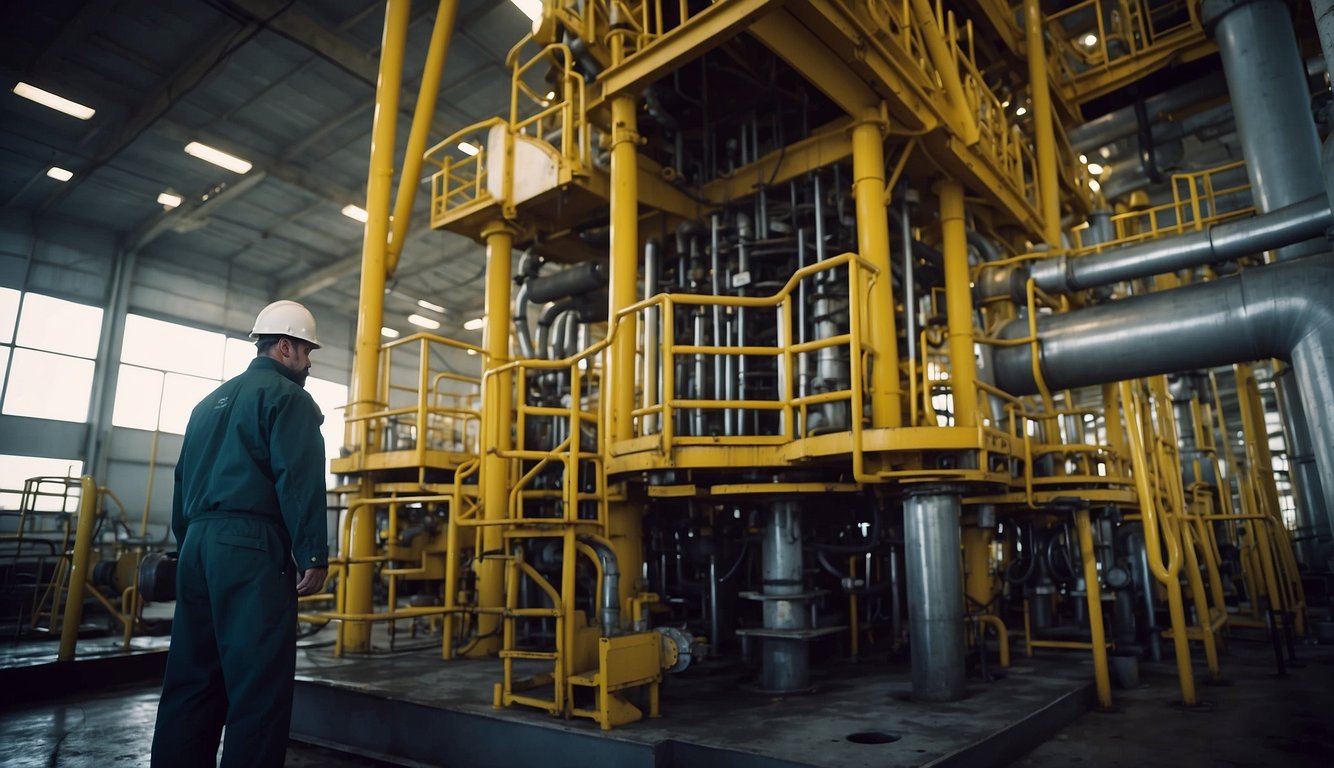
Resources for Further Learning
As an Oil and Gas Production Manager, staying current with the latest industry trends and developments is essential. Various resources are available to help you continue your education and improve your skills. Some great options include:
- Online courses: Many universities and organizations offer courses that cover a wide range of topics related to the oil and gas industry. These courses can significantly expand your knowledge and stay current on the latest trends and best practices.
- Industry publications: Several publications, such as Oil & Gas Journal and Petroleum Economist, focus on the oil and gas industry. These publications can provide valuable insights into industry trends, new technologies, and best practices.
- Conferences and events: Attending industry conferences and events can be a great way to network with other professionals and learn about new developments in the industry. Some popular events include the Offshore Technology Conference and the Global Petroleum Show.
Professional Organizations
Joining a professional organization can be a great way to connect with other professionals in the industry and stay up-to-date on the latest trends and best practices. Some popular organizations for Oil and Gas Production Managers include:
- Society of Petroleum Engineers (SPE): The SPE is a global professional organization focusing on the oil and gas industry. They offer a variety of resources and events for professionals in the industry.
- American Petroleum Institute (API): The API is a trade association that represents the oil and gas industry in the United States. They offer a variety of resources and events for professionals in the industry.
- International Association of Oil and Gas Producers (IOGP): The IOGP is a global organization representing the upstream oil and gas industry. They offer a variety of resources and events for professionals in the industry.
By taking advantage of these resources and organizations, you can continue to improve your knowledge and skills as an Oil and Gas Production Manager and stay up-to-date on the latest industry trends and best practices.
